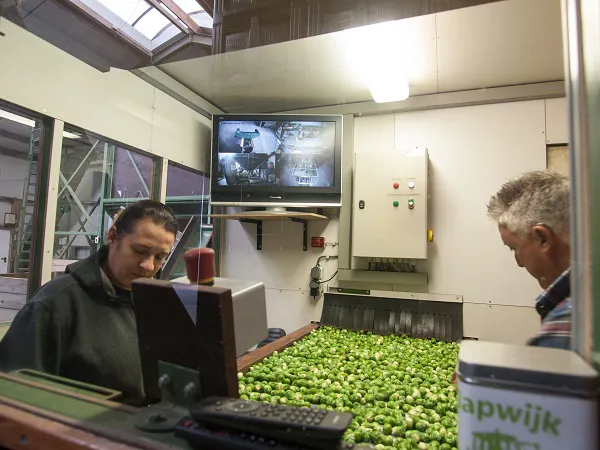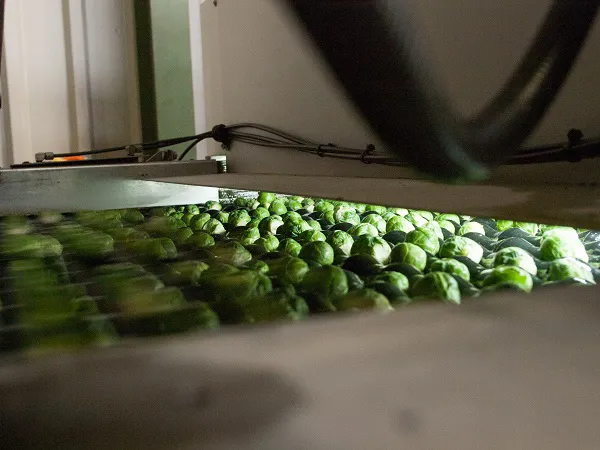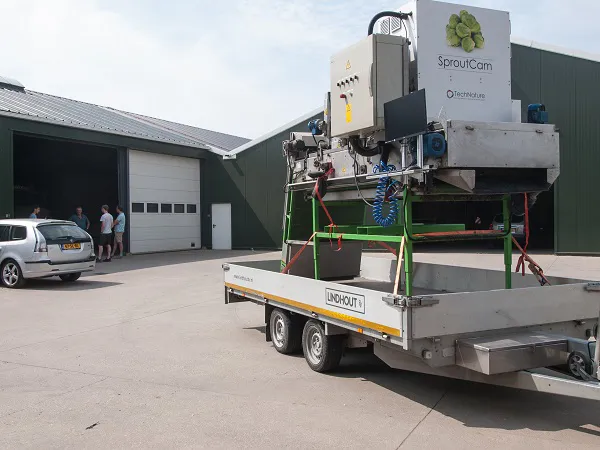Three years ago in the Netherlands, TechNature developed the SproutCam, an optical Brussels sprout grader. Since then, this grader has found a home at about 30 local and overseas producers. "Unique to our technology is that it combines image and defect recognition. As a result, even inferior batches gain some value without costing extra capacity," says Wouter Bac.
 "It saves a lot of time, and the reader is highly accurate, which means the grader(s) have far less workload."
"It saves a lot of time, and the reader is highly accurate, which means the grader(s) have far less workload."
TechNature is mainly active in rose and egg sorting techniques. A company intern whose father grows Brussels sprouts came up with the idea of developing a new Brussels sprout grading method. "Eggs and Brussels sprouts are somewhat similar, which gave us a good starting point. There was already sorting technology available for sprouts, but it was outdated, not entirely error-free, and had limited capacity."

Combined views
What distinguishes the SproutCam is that image recognition, done via both side and top cameras, is combined with Artificial Intelligence (AI) based defect recognition. "There are usually only top cameras, making it hard to recognize defects at the top or bottom of the sprout. Our side cameras overcome that. Also unusual is that we have a program for defects in cleaned as well as uncleaned sprouts," explains Wouter.
Fewer rejects
Brussels sprouts are a finicky natural product that need accurate assessment. "It's a cabbage with many small leaves, which makes it especially tricky. You can easily mistake a shadow for damage. Plus, there are all kinds of different varieties, with autumn sprouts, for example, having different characteristics from spring sprouts. Not to mention the seasonal and color differences and the distinction between wet and dry products. Thanks to its AI-based defect recognition, the SproutCam can detect any kind of bad Brussels sprout. It can remove up to 90% of the defective sprouts in an inferior batch. That means even those less-good batches can be processed and thus gain value."
 The SproutCam being installed at Klapwijk. Gert Klapwijk and his son, Gerbrand, were among the first farmers to buy this machine.
The SproutCam being installed at Klapwijk. Gert Klapwijk and his son, Gerbrand, were among the first farmers to buy this machine.
High capacity
According to Wouter, this grader can easily replace four people while processing between five and seven tons of fresh Brussels sprouts per hour. And it can readily fit in an existing sorting or packing line.
"Labor-wise, the machine can save each of our customers €30,000 to €85,000 annually. It costs in the region of €107,000 to €127,000, depending on the options chosen. An average packer or grower can earn back that investment within two to three years. Plus, because the machine increases capacity, the entire labor shift is shorter; something that's especially interesting for moderate-sized batches," he concludes.
Photo credit: Chris Konings
TechNature B.V.
Moerkapelse Zijde 36
2751 DL Moerkapelle
wouter.bac@technature.nl
www.technature.nl
